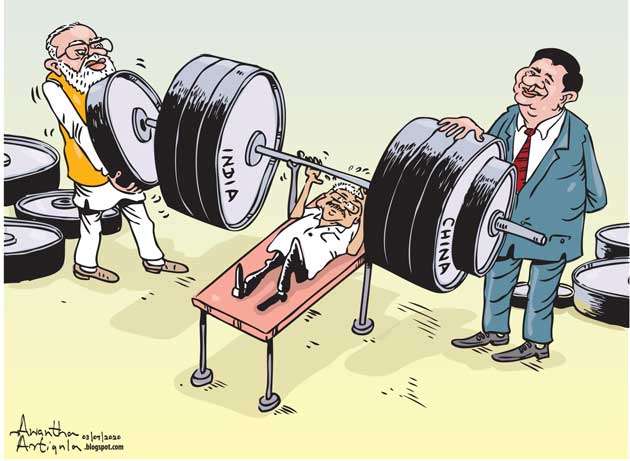Amid concerns over growing Chinese footprints in Sri Lanka, the neighbouring island nation is looking to boost defence and security ties with India.
An integrated country strategy paper drafted under new high commissioner Milinda Moragoda, who finally took charge here on August 30, calls for frequent joint military exercises, more high-level military exchanges, utilisation of India’s $ 50 million counter-terrorism Line of Credit and for increasing the staff strength of defence advisor’s office.
The office of the Lankan high commissioner had remained vacant since January, 2020. While Moragoda was named high commissioner last year, it’s only now that he has assumed his official duty. This period coincided with some serious turbulence in bilateral ties following Sri Lanka’s decision to unilaterally banish India and Japan from the Colombo port’s East Container Terminal project that the 3 countries had agreed to jointly develop in a tripartite agreement. India was then forced to publicly remind Sri Lanka of the need to adhere to international commitments.
The Rajapaksa family’s apparent proximity to China further fuelled the ‘’trust deficit’’ in recent times. Moragoda is now seeking to address the same through the strategy proposal before President Gotabaya Rajapaksa. Outlining key tasks for Lankan missions in India, the proposal seeks to enhance the partnership to a strategic level by expanding bilateral cooperation in defence and Indian Ocean maritime security and says this would safeguard Sri Lanka’s strategic interests.
India had in 2019 announced a $ 50 million special Line of Credit for counter-terrorism activities which, as the paper notes, Sri Lanka is yet to utilize. “Seeking useful ways to utilize this special Line of Credit would be important. It is understood that more Lines of Credit in the defence sector are in the pipeline,’’ it says.
Among the key implementation tasks for the Lankan missions are securing and fully utilising all training berths offered by India’s defence ministry and seeking new training opportunities with Indian paramilitary forces and police.
Admitting that there is growing trust deficit because of ’’the changes in the geo-political equilibrium’’, the paper calls for transcending the transactional approach that has dominated the bilateral relationship. One of the objectives is to strengthen the bilateral relationship through regular high-level political visits between the 2 countries and enhance cooperation with India at multilateral and regional level.
Another objective mentioned is to resolve the contentious issue of externally displaced persons. ”The presence of Tamil externally displaced persons from Sri Lanka in India, particularly in the state of Tamil Nadu gives rise to complications in bilateral relations. Vested interests have exploited the sentiments associated with the externally displaced persons to give credence to their theories for political gains,’’ says the paper.


